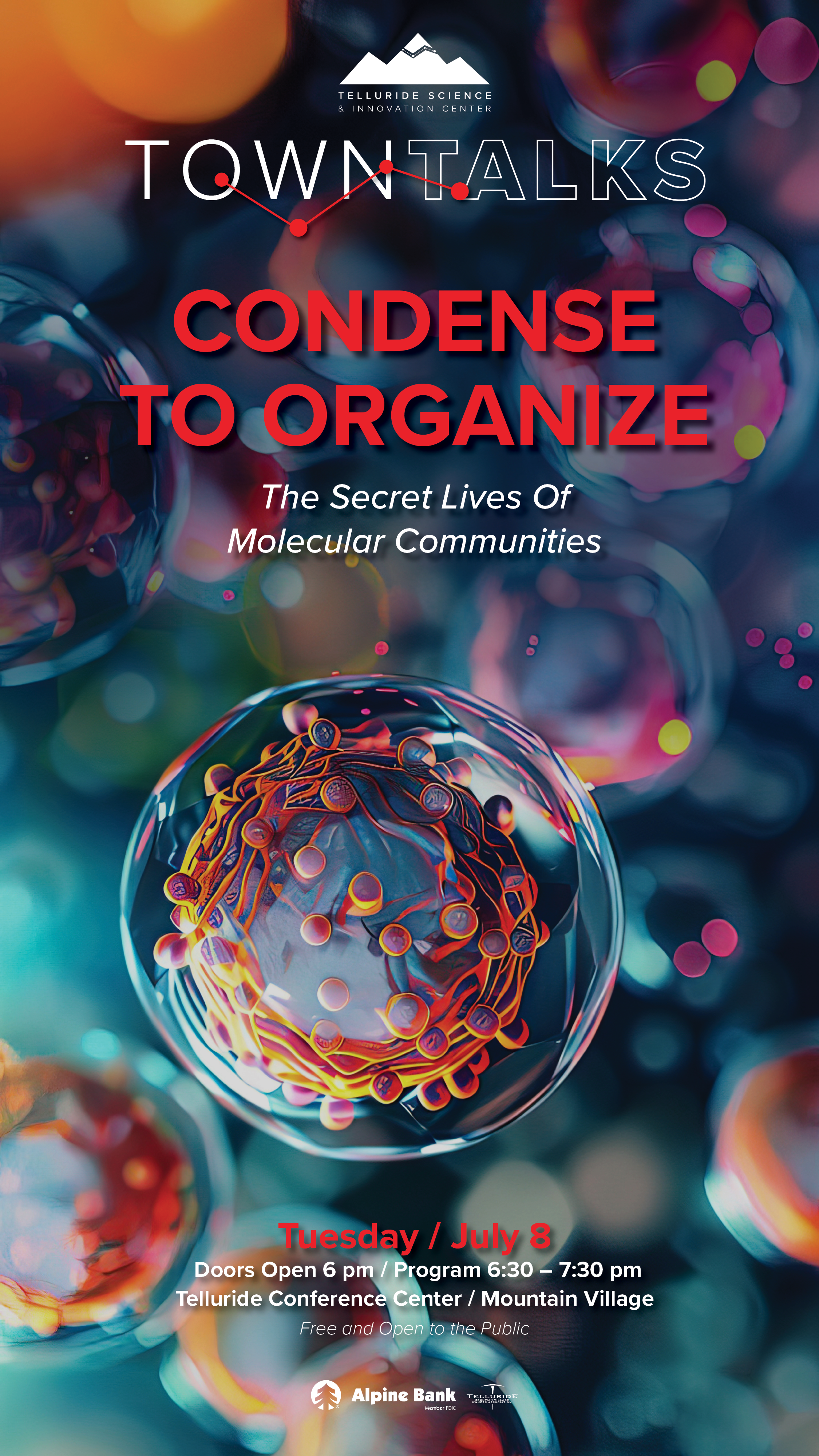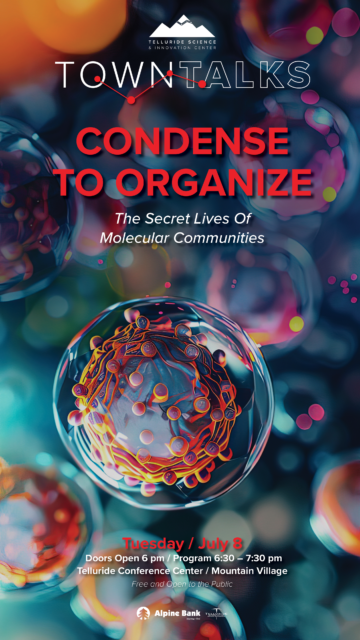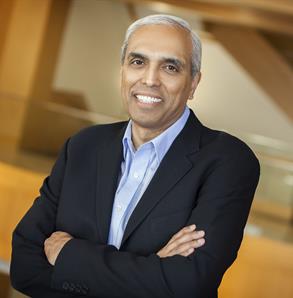
02 Jul Telluride Science Town Talks: “Condense to Organize: Secret lives of Molecular Communities,” 7/8!
This coming week the 2025 Telluride Science Town Talks series continues with “Condense to organize: The secret lives of molecular communities that pop up and dissolve within biological cells.” The takes place Tuesday, July 8, 6:30 pm; doors, 6 p.m. and features Dr. Rohit Pappu.
Town Talks are FREE and open to the public.
Visit telluridescience.org to learn more about Telluride Science and the capital campaign to transform the historic Telluride Depot into the Telluride Science & Innovation Center. The venue is the permanent home for Telluride Science and a global hub of inspired knowledge exchange and development where great minds get to solve great challenges.
The 2025 Telluride Science Town Talks series is presented by Alpine Bank with additional support from the Telluride Mountain Village Owner’s Association.
Go here for more about Telluride Science.
Go here for more on Town Talks,

We often think of communities as geographical: neighborhoods, towns, or cities where people live, work, and interact.
Other communities are cultural, connected by a shared heritage, language, or tradition.
In the digital world, virtual communities thrive through common interests and activities online.
But not all communities are built around people.
Some very important communities fly under the radar in the medical community, one of them a community comprised of proteins, nucleic acids, solutes, metabolites known as bio-molecular condensates. The job of these particular micro-communities is to aid biochemical reactions within cells and complete necessary cellular functions in all living organisms.
During his upcoming Town Talk on July 8th, “Condense to organize: The secret lives of molecular communities that pop up and dissolve within biological cells,” Dr. Rohit Pappu will provide a high-level guide to the physical and chemical principles underlying macromolecular condensation. He will also discuss the unifying themes in neurodegeneration and how his research holds promise for treatment of some of the most devastating diseases of our time such as ALS, cancer, and other dementias. In fact, Pappu often quotes one particular study that showed how transplant acceptance rates in patients rose from 60% to 100% with the use of a new medications informed by his research.
In the end it is important to remember that cells are the fundamental building blocks of life. The ability of each and every cell to replicate, survive, maintain homeostasis, and program its own death form the basis for birth, life, death, and regeneration.
Those processes are undergirded by a dizzying array of biochemical reactions that have to happen at the right place and time and must involve the right components – including condensates.
The importance of condensates cannot be understated. Breakthroughs in Pappu’s field are imperative not only to medical applications, but also for the understanding organisms as a whole.
Dr. Rohit Pappu, more:

Dr. Rohit Pappu, courtesy Telluride Science.
In 2001, Dr. Rohit Pappu became a professor in Biomedical Engineering at Washington University in St. Louis. He is now the director of the Center for Biomolecular Condensates, co-director of the Center for High Performance Computing, and a member of the Hope Center for Neurological Disorders.
In 1990, Pappu completed his undergraduate work in physics, mathematics, and electronics at the St. Joseph’s University, Bangalore. Soon after, in 1996, he received a masters degree in solid-state physics in 1993 and Ph.D. in biological physics at Tufts University.
Pappu also completed two biophysics postdoctoral fellowships at Washington University and Johns Hopkins University Schools of Medicine.
Again at the Pappu Lab, he and his team aim to advance our understanding of disease processes connected to bio-molecular condensates and their properties.


Sorry, the comment form is closed at this time.